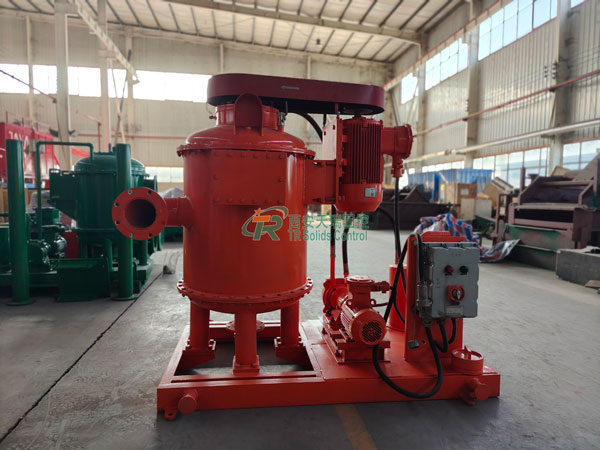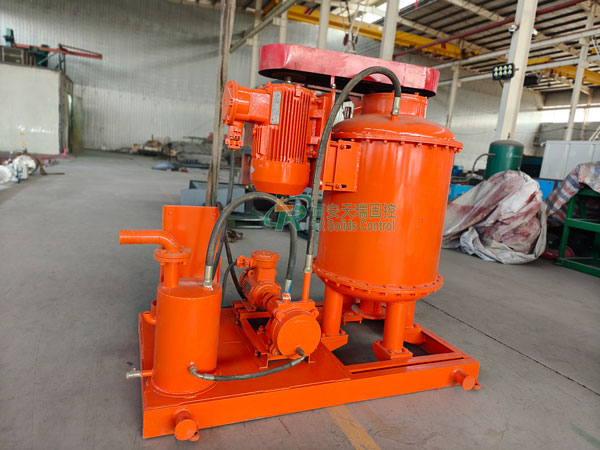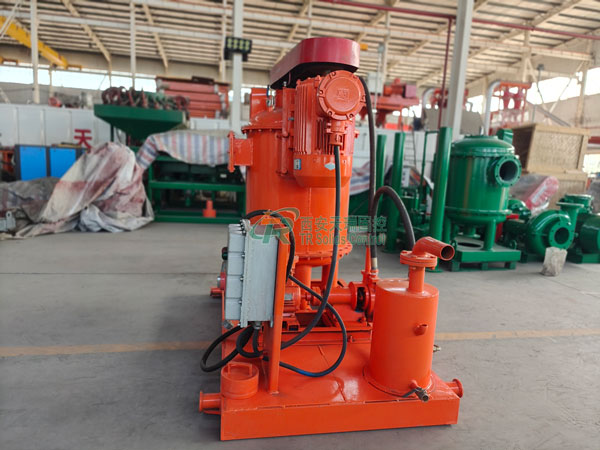Comparison of Models and Performance of Tianrui Solids Control Drilling Negative Pressure Degassers Model and performance comparison of Tianrui Solid Control Drilling Negative Pressure Degasser TR Solid Control,Negative Pressure Degasser, Drilling Fluid Vacuum Degasser, TR Degasser Model Comparison
The drilling negative pressure degasser (vacuum degasser) is a key piece of equipment in the drilling fluid solids control system. It is mainly used to remove gas that has invaded the drilling fluid, restore the mud's specific gravity, and stabilize its performance.
As an indispensable piece of equipment in the petroleum industry, the performance and model selection of drilling negative pressure degassers directly affect work efficiency and safety. So, what are the differences between the mainstream drilling negative pressure degasser models on the market? Which one is more suitable for your needs? Today, we will compare the performance of Tianrui Solids Control vacuum degasser models from multiple perspectives to help you make an informed choice.
What is a drilling negative pressure degassing device?
A drilling degassing device is a piece of equipment specifically designed for oil drilling. It is used to remove gases, including hazardous flammable gases, from drilling fluids, thereby ensuring the smooth progress of drilling operations. Its core function is to maintain the stability of drilling fluids and prevent blowout accidents. It is widely used in oil and gas drilling, geothermal drilling, and water well construction.

A performance comparison of TR Solid Control's vacuum degassing devices (negative pressure degassing devices) models can be conducted from the perspectives of processing capacity, degassing efficiency, vacuum degree, motor power, and structural advantages. A detailed analysis follows:
| Performance | TRZCQ240 | TRZCQ270 | TRZCQ300 | TRZCQ360 |
| Main tank diameter | 700mm | 800mm | 900mm | 1000mm |
| Capacity | ≤240 m³/h | ≤270 m³/h | ≤300 m³/h | ≤360 m³/h |
| Vacuum Degree | -0.03~-0.045MPa | -0.03~-0.045MPa | -0.03~-0.045MPa | -0.03~-0.045MPa |
| Transission Ratio | 1.68 | 1.68 | 1.68 | 1.72 |
| Degassing Efficiency | ≥95% | ≥95% | ≥95% | ≥95% |
| Main Motor Power | 15kW | 22kW | 30kW | 37kW |
| Vacuum Pump Power | 2.2kW | 3kW | 4kW | 7.5kW |
| Impeller Speed | 860r/min | 870r/min | 876r/min | 880r/min |
| Dimension | 1750×860×1500mm | 2000×1000×1670mm | 2250×1330×1650mm | 2400×1500×1850mm |
| Weight | 1100kg | 1350kg | 1650kg | 1800kg |
| Ex Stand | ExdIIBt4/IECEX/ATEX | |||

Processing capacity tiered upgrade
Tank size and throughput matching: The diameter increased from 700mm to 1000mm, and the throughput increased by 50% (240→360 m³/h) to accommodate different drilling fluid circulation requirements.
Small bubble separation efficiency: All models are focused on removing bubbles with a diameter of<0.8mm, but the large diameter tank (such as the 360 model) is less prone to clogging under high gas content conditions due to its larger separation area.
Vacuum system performance differentiation
Basic vacuum consistency: The core vacuum degree range is uniform (-0.03~-0.045MPa), ensuring a basic negative pressure environment for gas-liquid separation.
Enhanced high-end models: The vacuum ratio of the 360 model is increased to 1.72 (compared to 1.68 for others), and combined with an 880r/min high-speed impeller, the bubble breaking efficiency is improved by about 3%.
Energy consumption and size trade-offs
Power increase pattern: The power of the main motor increases linearly with the processing capacity (15→37kW), and the power of the vacuum pump jumps to 7.5kW in the 360 model (double that of the 300 model), which requires matching the on-site power supply capacity.
Space occupancy differences: The 360 model is 37% longer and 64% heavier than the 240 model. For smaller platforms, the compact design advantages of the 240/270 models should be given priority.
Commonalities of Security and Adaptability
Explosion-proof and environmentally friendly: The entire series complies with the ExdIIBt4 explosion-proof standard and is suitable for hazardous environments; the anti-clogging design of the exhaust pipe reduces the risk of gas accumulation.
Multifunctional and reusable: It can also be used as a high-power mixer, reducing the number of solids control system devices, and is especially suitable for mobile drilling platforms with limited space.
| Model | Applicable working conditions | Core advantages |
| TRZCQ240 | Medium-deep well and small circulation volume mud system | Low energy consumption, easy to install, and lightweight |
| TRZCQ270 | Conventional land drilling, medium gas-bearing formations | Balanced cost performance and wide compatibility |
| TRZCQ300 | Deep well, high viscosity drilling fluid treatment | High-power impeller with strong anti-clogging ability |
| TRZCQ360 | Offshore drilling, high-gas-bearing formations (such as shale gas development) | Ultra-large processing capacity, peak separation efficiency |
Self-priming design:No additional supply pump is required, reducing system complexity (standard configuration across the entire series).
Intelligent optional configuration:Some models can be equipped with infrared liquid level monitoring to achieve automated start-stop control.
Material durability:The tank body is made of corrosion-resistant steel to reduce the corrosion and damage to the equipment caused by gas intrusion mud.

How to Choose the Right Vacuum Degasser Model? By understanding the characteristics of different models, you've already taken an important step towards optimizing drilling efficiency. TR Solids Control suggests that when selecting a vacuum degasser, you should consider factors such as drilling fluid flow rate, operating environment, and budget to choose one that suits your needs—this will pave the way for future drilling operations!

Address: No.2 Hu·ochang Rood, Yangling District, Xianyang City, Shaanxi Province, China
Tel: +86-13186019379
Wechat: 18509252400
Email: info@mudsolidscontrol.com
Contact: Mr.Li